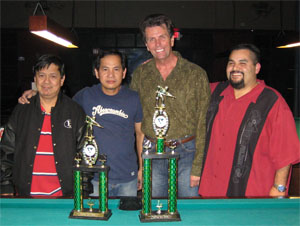Again with the money?
Money is not better in Europe, yet they produce high-level players.
Here is a tournament that will start in a week – Mezz Bucharest Open

www.9ball.ro
As you can see, the prize money is not that big.
Yet, a full field of 256 players.
Some of them are amateurs, some are unknown; it doesn't mean that they are not strong, and some big names, such as Alcaide, Capito, Chamat (oldie but goodie), Feijen, Filler, the Kaci brothers, Souquet and Souto.
So really, it's not the money; it's the attitude and mentality. The money is just an excuse. After all, it's all about money or sex...
The problem with pool in America is that you don't see it as a sport, not even the players. It was always about the money, the gamble, and the side action. This never changed.
Don't use the word PRO; it confuses all of you. Think of them as "HIGH LEVEL PLAYERS", and now that you have Frago, it's easy; think of them as "above 800 players". And now think about what needs to be done to get there.
Bar boxes are not the problem, but they are part of the problem because they create mentality – the wrong kind of mentality.
How many American "pro players" do you know that actually have a full pro athlete mentality? and seriousness and put that much effort and sacrifice to be the best? not to make money!!! but to be the best!
Saying there is not money in it to work that hard only means the heart is not in it. because if you get to be the best, you'll get the money!
